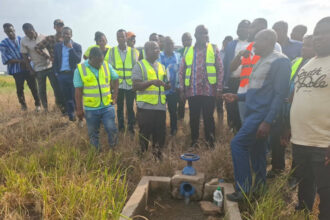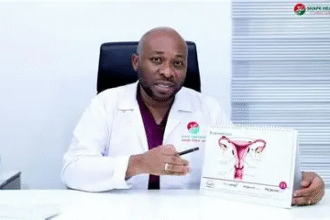The STAR-Ghana Foundation has set in motion a new five-year strategic plan (2025–2029) aimed at strengthening its long-term impact and deepening its contribution to Ghana’s development agenda.
According to the Foundation, the five- year plan is designed to position it for sustainable growth while ensuring that it remains relevant to the evolving needs and aspirations of Ghanaians.
Under the new strategy, STAR-Ghana says it will leverage its established roles as a convener, catalyst, coordinator, learning facilitator, and resource mobiliser to enhance citizen-led development across the country.
These roles, the Foundation notes, will guide its interventions and partnerships aimed at promoting inclusive governance, active citizenship, and collaborative problem-solving.
In his remarks the Executive Director of STAR-Ghana Foundation, Mr Ibrahim-Tanko Amidu, indicated that the Foundation conducted an extensive review of both global and national trends before outlining its priorities for the next five years.
Mr Amidu said the new strategy which is expected to drive more meaningful impact and reinforce the foundation’s position as a key player in Ghana’s civil society and development landscape.
He stressed the need for greater youth involvement in governance, highlighting the crucial role young people play in driving economic transformation.
He added, “There is still much to be done. The majority of our population is made up of young people, and they form the labour force needed for the economic transformation of this country.”
Mr Amidu believed that, “when citizens are informed, engaged, and empowered, they can drive meaningful change in governance and public service delivery.”
The event brought together Civil Society Organizations, Government agencies, Academia,the media among other interest groups.
Presenting the highlights of the Strategic Plan, Eunice Agbenyadzi, Head of Programmes at STAR-Ghana Foundation noted that the new strategy is full of promise, and opportunity to change the course of Ghana’s development by centering citizen voice and active civic participation.
However, she stated that our success is bound by a changing world characterised by shrinking civic space and donor aid, rising digital activism, economic pressures, climate threats, eroding trust in public institutions, and a growing youth population seeking engagement.
She added “Our new Strategic Plan is designed to strengthen and deepen our 3CL approach, through which we play five interconnected roles within Ghana’s civic space.”
The 3CL&R approach encompasses five key roles: Convener, Catalyst, Coordinator, Learning Facilitator, and Resource Mobiliser.
By: Mohammed Suleman














